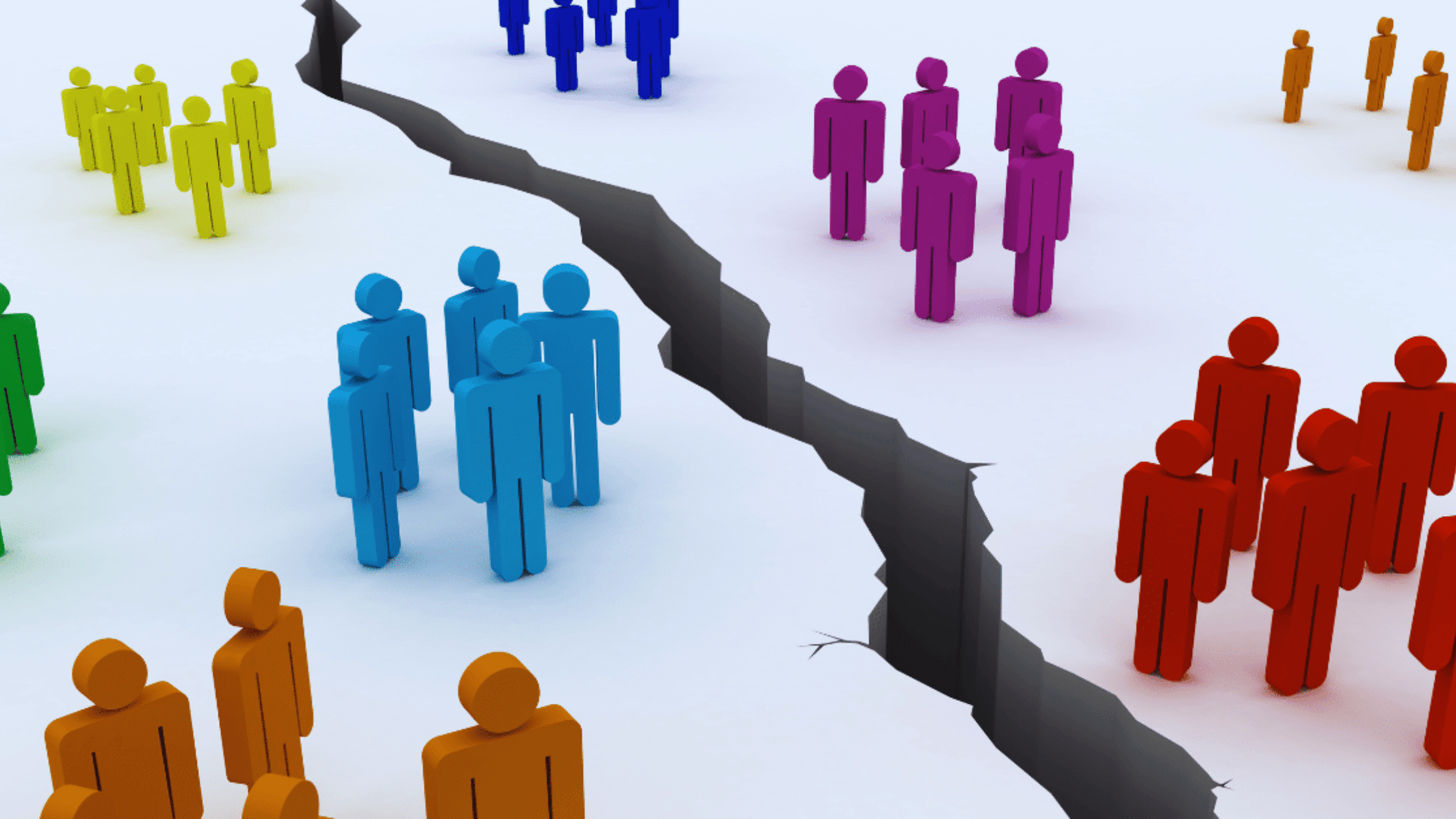“5 Unexpected Reasons Every Leader Should Be a Reader” is written by Joe Terrell, Carey Nieuwhof’s Content Manager and host of The Art of Leadership Daily podcast.
Let me be honest.
Anytime someone in authority says they “haven’t read a book in years” or “don’t time have to read,” I immediately doubt their leadership abilities.
That may sound harsh, but I can’t help it.
As President Harry S. Truman said, “Not all readers are leaders, but all leaders are readers.”
A leader should never be caught off guard by the question, “What are you reading?” And they should always have an answer. After all, the benefits of being a lifelong learner and reader are incalculable.A leader should never be caught off guard by the question, “What are you reading?” And they should always have an answer. – @iamjoeterrellCLICK TO TWEET
Here are five reasons every leader should be a reader.
(Also, as an added bonus, I’ve included a section at the end of this article explaining how I’m able to read 75+ books a year – it’s a lot easier than you think!)
1. Reading is good for your brain
Through the context of early childhood education, many of us are familiar with the practical benefits of reading. Learning to read teaches us how to write, which, in turn, informs our ability to articulate complex thoughts and ideas.
However, many of us are unfamiliar with the multiple health benefits of reading.
For example, reading actually creates neurons in your brain through a process called “neurogenesis.” While reading, your brain connects abstract symbols (letters and words) to thoughts and images, which leads to the formation of quicker neural pathways between the parts of your brain associated with language development, memory, imagination, and sensory processing.
This may be one of the reasons reading is associated with a reduction in age-related cognitive decline. Two studies – one published in 2020 and another in 2018 – showed that symptoms associated with Alzheimer’s and dementia were greatly reduced in patients who read one or more times a week.
A study from the University of Sussex found that setting aside a few minutes each day for reading can decrease stress levels by sixty-eight percent. In fact, reading was a more effective stress reliever than walking, listening to music, or drinking a cup of warm tea.
In some parts of the world, books are “prescribed” by therapists and counselors to ease the effects of depression and anxiety. Reading prior to bed has also been shown to help ease your brain into a more restful night’s sleep.
And, to top it all off, a 2017 study correlated reading with a longer lifespan. Of course, this doesn’t mean reading on its own increases your life. Still, it does appear to indicate that a lifestyle that prioritizes reading is associated with a 20% reduction in mortality risk compared to lifestyles that don’t incorporate reading.
2. Reading offers perspective, wisdom, and insight from the greatest minds and events of history.
What do most of the greatest philosophers, theologians, business minds, presidents, generals, civil rights activists, inventors, and artists have in common? They’ve probably written a few books.
What an incredible opportunity!
Pick up a copy of Marcus Aurelius’s Meditations and find yourself learning at the feet of one of the wisest Roman Emperors. Soak in the oratory genius of Martin Luther King, Jr. in his collected speeches. Blow your mind and shatter your heart by the 19th-century Danish theologian Søren Kierkegaard in his masterpiece, Works of Love.
Simply by reading words on a page, you can tap into the rich vein of hard-fought wisdom, intellect, and instruction through the ages.
But the value extends beyond people and personalities. As Mark Twain famously said, “History doesn’t repeat itself, but it often rhymes.”
History reminds us that the present, just like the past, is maddeningly complex. It teaches us to reject simplistic narratives and rubs our noses in the harsh truth that “the line dividing good and evil cuts through the heart of every human being” (Aleksander Solzhenitsyn). The dramatic (and often catastrophic) interplay between power, greed, lust, and ego is just as alive today as it was 2,500 years ago.
For these reasons, I think the most important genres a leader should focus on are narrative nonfiction, biography, and history. Look for the works of leaders who have stood the test of time. As William Woodsworth said, “Let us learn from the past to profit by the present, to live better in the future.“
3. Reading increases empathy and opens our eyes to new perspectives, experiences, and ideas.
In his book Think Again, Adam Grant poses a provocative question: Why do we place so much value on remaining resolutely committed to our ideas, opinions, and beliefs about the world – even in the face of new, conflicting information?
Grant writes,
“When it comes to our possessions, we update with fervor. When it comes to our knowledge and opinions, we stick to our guns. We laugh at people who still use Windows 95, yet we still to cling to opinions we formed in 1995.”
Shouldn’t we seek out (and seek to be) leaders who are unafraid of “updating” their ideas when confronted with new experiences, evidence, and perspectives? Or would you rather follow a leader proud that they haven’t changed their mind on a single issue in twenty-five years?
(One of my favorite – and most telling – questions to ask leaders is: When was the last time you changed your mind about something?)Shouldn’t we seek to be leaders who are unafraid of “updating” our ideas when confronted with new evidence? Or would you rather follow a leader who hasn’t changed their mind on a single issue in 25 years? – @iamjoeterrellCLICK TO TWEET
If our brains work as “operating systems” for our worldview, then books can serve as the “upgrade package” to that operating system.
Let me be clear: I’m not saying that you must constantly be reinventing your core beliefs. If that were the case, you’d be a mess of a human being. But your ideas about the world need to be tested, challenged, and – if necessary – “updated” from time to time.
But I’m not just talking about intellectual enlightenment.
While engrossed in a good book, readers enter a “flow state” similar to that achieved through higher-level meditation practices. Through something called “emotional transportation,” readers can immerse themselves in the lived-in experiences of other people.
It’s no small wonder then that voracious readers – especially readers of literary fiction – tend to be more empathetic and emotionally intelligent than non-readers. And how can they not? Reading lets you inhabit the hopes, dreams, and struggles of other people who live and think differently than you.
In that sense, reading can be a dangerous pastime (why do you think we’ve seen a resurgence in book banning?), but it’s the best type of danger – the kind that makes you think.
As George R.R. Martin (author of the popular Game of Thrones series) says: “A reader lives a thousand lives before he dies. The man who never reads lives only one.”
4. Reading teaches us to slow down
We live in a culture of undeniable speed and productivity. We’re able to do more in less time than at any other point in history.
But what exactly have we done with all the extra time we’ve “saved?”
If you’re like most of us, you’ve likely filled the gaps in your schedule with the incessant white-noise hum of ” corporate data mining” masquerading as entertainment – either through social media, streaming services, internet browsing, or some combination of all three.
In The Ruthless Elimination of Hurry, John Mark Comer writes,
What you give your attention to is the person you become. Put another way: The mind is the portal to the soul, and what you fill your mind with will shape the trajectory of your character. In the end, your life is no more than the sum of what you gave your attention to.”
Most websites, apps, and social media feeds are designed to “steal” bigger and bigger chunks of your time without you realizing it.
Oh, sure, you might tell yourself you’re just “checking Slack” before you turn in for the night, but before you know it, you’ve scanned your latest emails, doomscrolled through Twitter, groaned at something a relative posted on Facebook, and watched three dozen Reels on Instagram.
An hour has passed, and you have nothing – literally nothing – to show for it.
But reading is different.
Reading requires focus and intentionality. It doesn’t just “happen” by accident – it requires conscious effort. You have to set aside time to read. And, preferably, more than 15 minutes at a time – that’s about how long it takes for your brain to “reset” and become immersed in the task at hand.
But what happens if your immersion in a book leads to you “losing” an hour of your time? Isn’t that the same as losing an hour to social media “browser hopping?”
I look at it this way: Yes, you’ve “lost” the same amount of time, but one option is akin to fast food for your brain – flashy, convenient, tasty, but ultimately unfulfilling and unhealthy – and the other is a gourmet meal – slow, generous, fulfilling, and healthy.
5. Reading is fun
I really hate that I have to say this, but I feel like it’s necessary for our day and age:
Not everything you read has to be “important” or “relevant.” You have permission to read whatever you want. You don’t have to try to impress anybody – including yourself – with the books on your nightstand.Not everything you read has to be “important” or “relevant.” You have permission to read whatever you want. – @iamjoeterrellCLICK TO TWEET
In some “leadership development” cultures, you can easily fall into the mindset that everything you do has to contribute to some productive end. That’s nonsense (and a terrible way to live). I know people who only read leadership guides and self-help books – and, if that’s your jam, go for it – but the reading experience can be so much broader than professional development.
You can read simply because you enjoy the pleasures of reading. And as you should. The right book can whisk you away to a far-off planet, a haunted mansion, or a tropical paradise – from the comfort of your own living room.
I’m not just talking about genre fiction here. There may be a nonfiction topic with which you’re particularly fascinated that has nothing to do with your career aspirations. That has how I ended up reading books about the psychology of modern-day cults, the death-defying antics of professional rock climbers, and the hunt for a man-eating tiger in the Siberian wilderness.
Yes, of course, you should read books that challenge your worldview, develop your character, and sharpen your skills, but you should also seek books that spark your imagination, thrill your senses, and satisfy your curiosity.
How to Read More
According to Pew Research Center, twenty-five percent of adult men and twenty-two percent of adult women didn’t read a book in the past twelve months.
In 1978, Gallup research reported that forty-two percent of adults had read eleven or more books in the past year. Today, only twenty-eight percent of adults reach that mark.
Overall, time spent reading for pleasure has decreased while time spent on our digital devices has increased. And increased social media usage has consistently been linked to increased feelings of anxiety, depression, and social isolation.
But I don’t have time to read, you’re probably saying to yourself. I’m way too busy!
You probably have more free time than you think.
The average American spends at least two-and-a-half hours per day scrolling mindlessly through their social media feeds. And that doesn’t include the time in front of the television watching Netflix or sports.
On average, if you read fifteen minutes a day, you can easily finish two books per month. That’s twenty-four books in a year. Or, if you can find the time to read twenty pages a day, you can read four hundred pages in a month (if you take the weekends off).
I know the responsibilities and stresses of parenthood torpedo many people’s annual reading goals, but we shouldn’t limit ourselves to words on a physical page.
Online subscription services like Audible offer audiobooks for a monthly subscription fee. And most large libraries allow you to “rent” downloadable audiobooks.
(I have a friend with two young children who “reads” more than sixty books a year by renting audiobooks from her local library and subscribing to Audible).
Ask yourself: When’s the last time scrolling through your social media feeds left you feeling less anxious or more fulfilled with your life? Probably never, right?
When it comes to free time, you have control over how you use it. Therefore, if you want to read more, you should make time for it. If you want to spend more time on social media, that’s what you’ll do – whether you realize it or not.When’s the last time scrolling through your social media feeds left you feeling less anxious or more fulfilled with your life? When it comes to free time, you have control over how you use it. – @iamjoeterrellCLICK TO TWEET
In an article for Observer, Charles Chu laments,
“Here’s the simple truth behind reading a lot of books. It’s not that hard. We have all the time we need. The scary part – the part we all ignore – is that we are too addicted, too weak, and too distracted to do what we all know is important.“
It all boils down to a choice.
You could consume more media that’ll leave you feeling more frustrated, anxious, and angry at the world, or you could crack open a book and let different voices, perspectives, and imaginations open the world up to you like a blooming flower.










